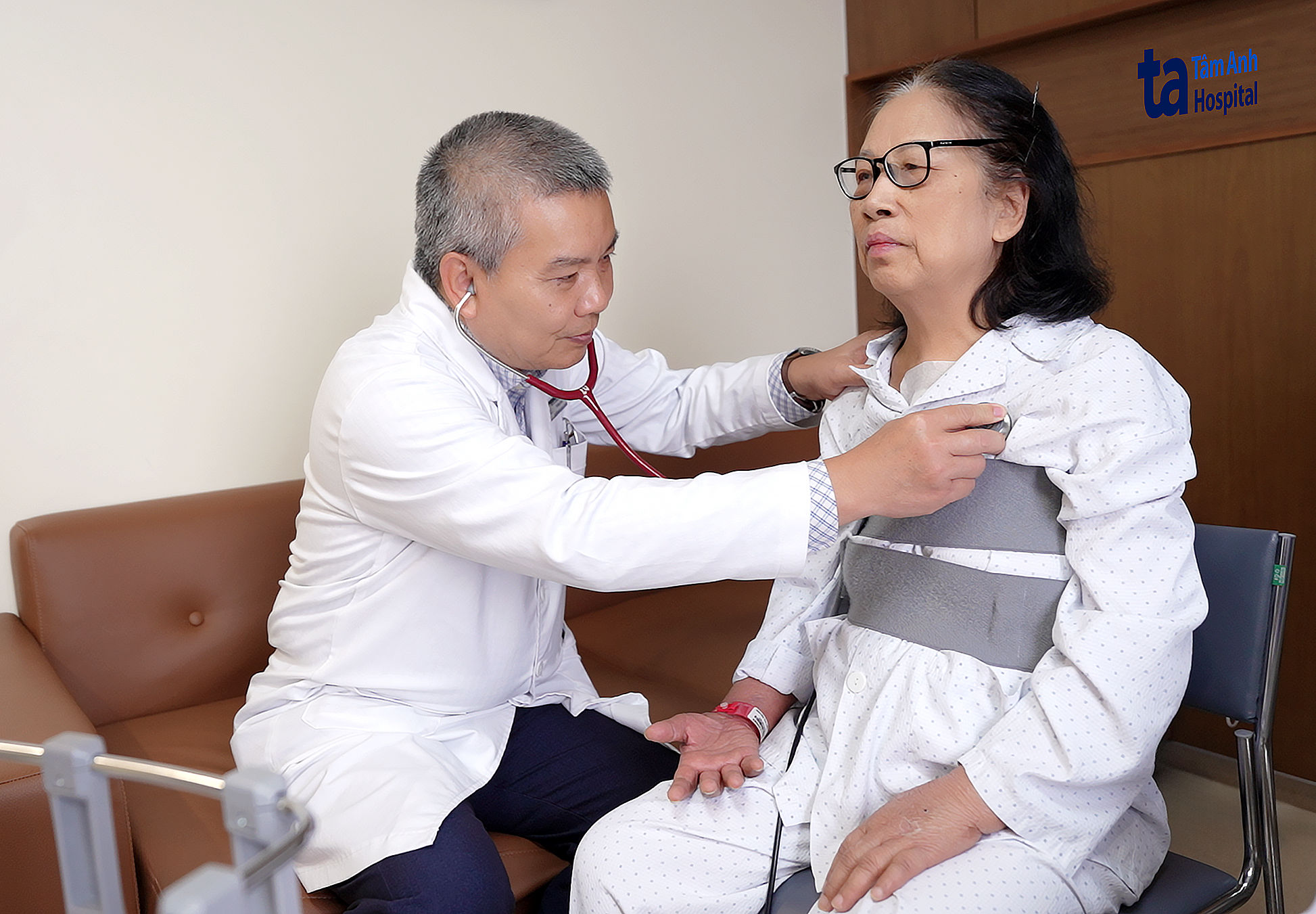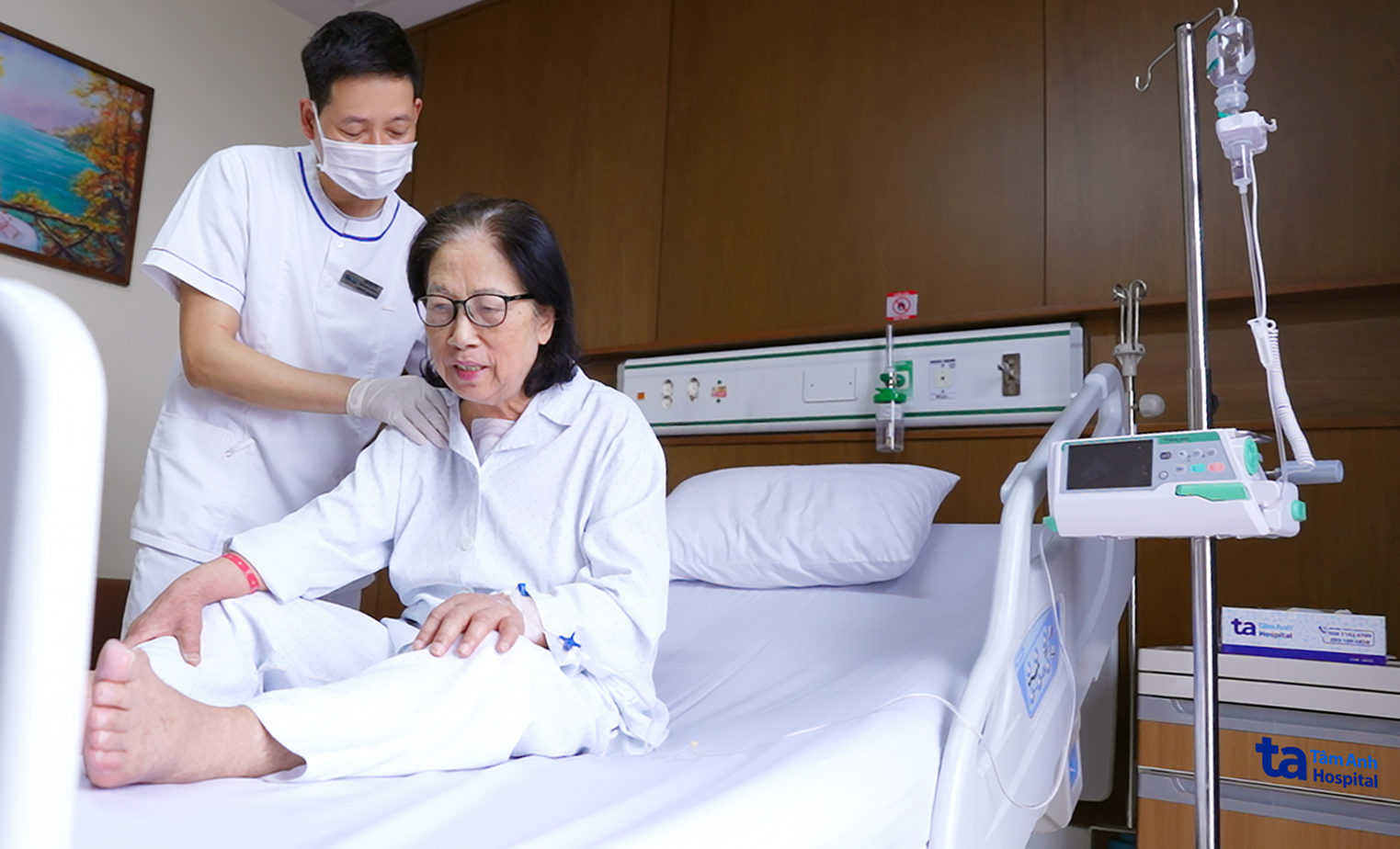72-year-old Lieu, who had a mitral valve replacement 24 years ago due to rheumatic heart disease, was recently admitted to Tam Anh General Hospital in Hanoi. She was experiencing endocarditis (an infection of the heart's inner lining), which led to a blood infection, severely damaging her artificial valve. This caused severe valve leakage, rapidly progressing heart failure, and ultimately, end-stage heart failure (NYHA IV).
On 18/7, Associate Professor Nguyen Huu Uoc, Head of the Department of Cardiothoracic and Vascular Surgery, reported that Lieu's liver was enlarged by 5-7 cm, accompanied by pleural effusion and lung distension due to severe pulmonary arterial hypertension and severe mitral and tricuspid regurgitation. According to Associate Professor Uoc, her progressing heart failure caused liver and kidney dysfunction, as well as blood clotting disorders due to prolonged high-dose medication. Without surgery, approximately 90% of patients with end-stage heart failure can die within 6-12 months.
Associate Professor Uoc described the open-heart surgery as complex due to Lieu's previous cardiac surgery, extensive adhesions in the old surgical area, and difficult access. Her age and prolonged heart failure, leading to multiple organ failure, increased the risk of complications during and after surgery. The surgical team opted for a femoral approach for extracorporeal circulation to minimize the risk of arrhythmia and bleeding during open-chest procedures. The infected and necrotic artificial valve was removed, and a new valve was implanted as quickly as possible.
 |
Associate Professor Uoc examines Lieu after surgery. Photo: Tam Anh General Hospital |
Associate Professor Uoc examines Lieu after surgery. Photo: Tam Anh General Hospital
Post-surgery, Lieu experienced pulmonary hypertension, pulmonary edema, and multiple organ failure. While ECMO (extracorporeal membrane oxygenation) is typically the preferred solution in such cases to allow the heart and lungs to rest and recover, Associate Professor Uoc explained that ECMO carries bleeding and infection risks, which were particularly dangerous for Lieu. Therefore, the medical team employed continuous renal replacement therapy to slowly and continuously remove toxins and excess electrolytes from her blood over 24 hours. Lieu's health gradually improved, with restored urination, reduced pulmonary edema, stabilized blood pressure, and improved circulatory parameters. She was discharged after 17 days to continue medical treatment and regular check-ups.
 |
Lieu recovers after surgery. Photo: Tam Anh General Hospital |
Lieu recovers after surgery. Photo: Tam Anh General Hospital
According to Associate Professor Uoc, the 5-year survival rate for patients after heart valve replacement surgery is over 90%, and the 10-year survival rate is over 80%.
Ly Nguyen
| Readers can submit questions about cardiovascular diseases here for doctors to answer. |












